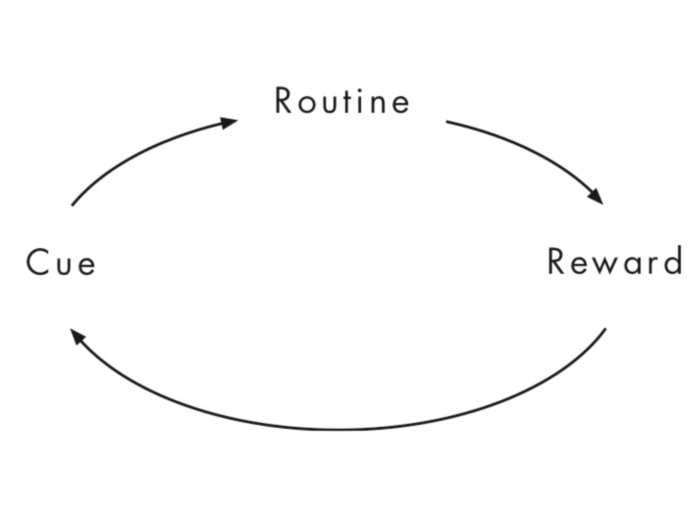While we might not want to admit it, we all have at least one bad habit in both our personal and/or work lives that we’d like to break. Whether it’s spending too much time on social media sites, being chronically late to the office, or procrastinating on important project deadlines there is no collective shortage of less-than-desirable habits we’d prefer banished from our lives. Don’t stress! You are not doomed to a life ruled by bad habits. There are a number of tips that you can try — defining the behavior you want to change, identifying and dealing with your triggers, and getting support from your friends and family — which can all help you to say sayonara to bad habits. Let’s start by looking at how bad habits can impact you at work.
Bad Habits Affect Job Performance
If you want to advance in your company and nab a plum promotion, it is a good idea to become more self-aware to ensure you are practicing habits that are beneficial to you and the company. There are a number of bad habits at work that can delay promotions, cause loss of clients or profitability, or even lead to termination. You want to be recognized for the effort you put into your work, not known as someone who just “phones it in” or can’t be trusted.
Identifying Your Triggers
In many cases, a bad habit can be a way of dealing with stress or boredom. Having an overly negative attitude or procrastinating at work by spending time on the internet can actually be a coping mechanism. For instance, if a project is causing stress in your life, you might be tempted to ignore it and leave it to the last minute instead of taking the bull by the horns and just getting started. In order to address bad habits and get rid of them, it’s important to figure out what triggers you to do them in the first place.
Are you feeling unsatisfied with your role or under a lot of stress and thus always late to meetings? Do you feel like you are being given projects that are too difficult or time-consuming and thus you procrastinate to the point that they end up being late? When you are confronted by your boss do you defensively fib because you are insecure about your position? Or, are your bad habits simply that — habits that you have grown accustomed to doing and that you now continue to do all of the time, without thinking?
There is a psychology behind bad habits. Animal studies at MIT “show that cost considerations are wired into the learning of habits” and that “habit formation, at least in primates, is driven by neurons that represent the cost of a habit, as well as the reward” says Elizabeth Dougherty of the McGovern Institute for Brain Research. When this analysis manifests into action, we form a habit loop.
According to Charles Duhigg, author of “The Power of Habit: Why We Do What We Do in Life and Business”, a habit loop consists of three components: a cue, the routine, and the reward.

The cue is the trigger that automatically sets an action (the routine) in motion be it a time, a location, a person etcetera, and garners a reward.
Satisfying Your Need
Because the psychology driving our habits can be powerful — they are, in essence, hard-wired into our brains — they can be hard to break. Duhigg uses his afternoon cookie habit to explain how by our reward we can figure out another way to receive our a benefit that may be less detrimental to our jobs – or in his case, his waistline.
The key is to determine what need your current bad habit is satisfying and find something else that will give you the same sense of accomplishment, happiness, relaxation, or other positive feelings.
If you usually hit Instagram when you feel boredom setting in at work, understand what purpose the screen time is serving. If it’s a need to feel socially connected, try getting up from your desk and catching up with a coworker instead. If you find that you are late to work your reward may be enough sleep. Instead of snoozing your alarm, incorporate or remove actions from your nightly routine to ensure you get a full seven hours of shut-eye. Or if you are chronically unhappy at work and thus late most mornings, it may be time to speak with your boss and/or possibly look for a new position.
Getting Outside Support
You might be embarrassed to confess your constant procrastination or tardiness to a friend or colleague. However, having a support system in place can be a great way to overcome your bad habits. Chances are pretty good that your buddy has some bad habit skeletons in his or her closet. You might be able to offer support back. As Psychcentral.com reveals, recovery programs often include group meetings and individual sponsors or therapists. “Being accountable to others is a powerful incentive to keep on keeping on, and by both giving and receiving support, you can keep your goals in focus”.
How do you make this work on the job? If you are friends with any of your co-workers, seek out one who is especially trustworthy and share the bad habits you are trying to break. If you can’t discuss your bad habit at work, see where else you can find supportive people. Today, support groups are even using video conferencing to form online communities of people interested in improving their lives.
Start Your Bad Habit Breaking Journey Today
Breaking bad habits can seem like an overwhelming challenge. But making positive adjustments is possible. You have what it takes to break bad habits both at work and at home. And you will succeed. It takes time, effort and patience. As you start to shed your bad habits, remember to be patient with yourself. Real change can take time. Start by tweaking one habit one day at a time and you will soon have healthier habits and more satisfying rewards.
Have you kicked any bad work habits lately? Share with us how you did it on Twitter, Facebook or LinkedIn.





